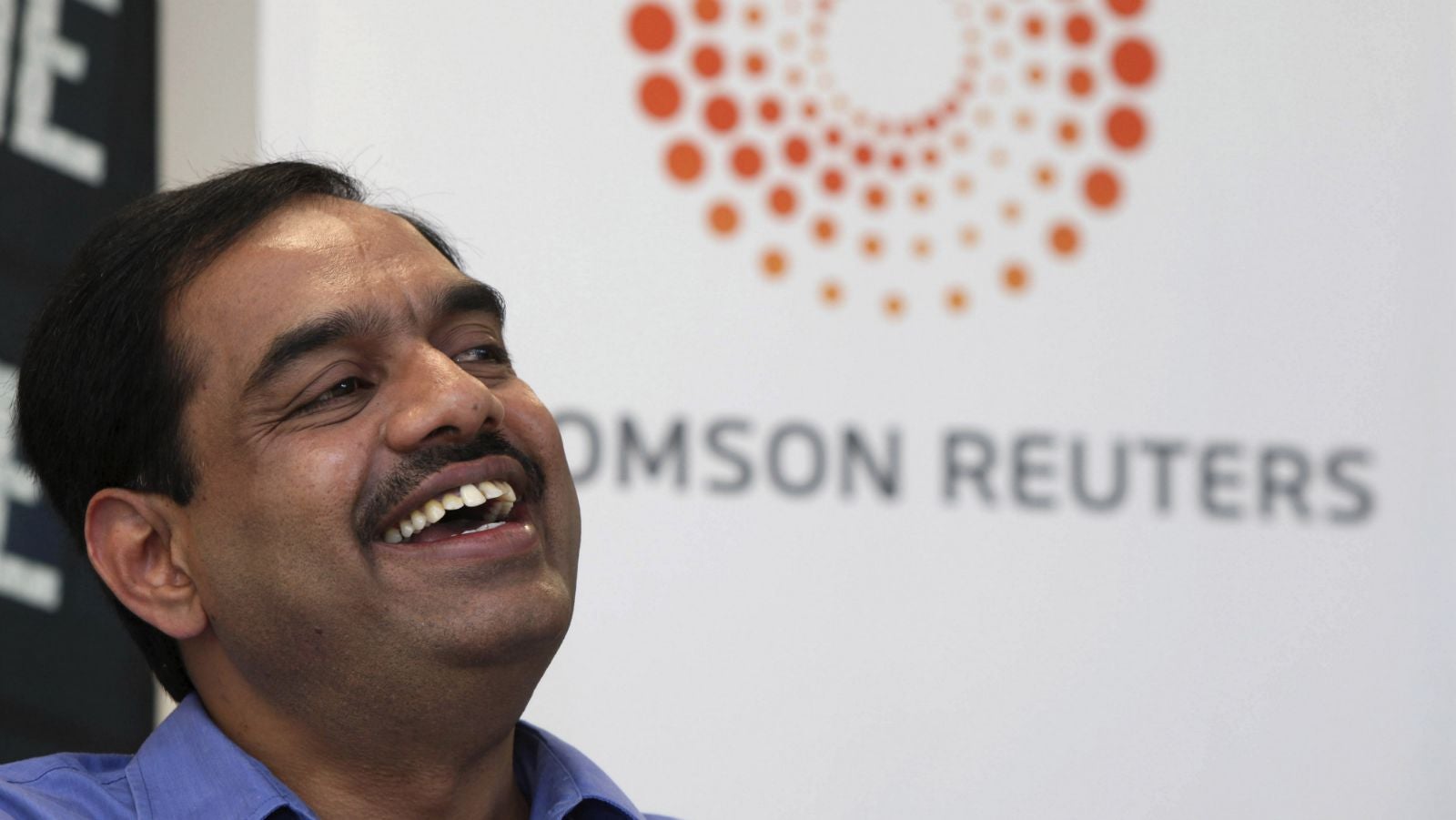A former Infosys CFO-turned-politician is making a million dollar bet on Indian startups
On December 31, 2013, Venkatraman Balakrishnan quit Infosys after a 22-year-long stint in India’s second largest information technology services company.


On December 31, 2013, Venkatraman Balakrishnan quit Infosys after a 22-year-long stint in India’s second largest information technology services company.
The next day, the chartered accountant—once Infosys’ chief financial officer, and a candidate to become the company’s CEO—made his political debut by joining the Aam Aadmi Party (AAP).
Over the next few months, Balakrishnan—with declared assets worth some Rs190 crore ($30 million)—got to work on his campaign in the Bangalore Central constituency for the Lok Sabha polls. He was among the most high-profile AAP candidates in the city, and coordinated party chief Arvind Kejriwal’s fund-raising dinner in Bangalore, among other things. Still, Bala, as he’s more popularly known, lost by a wide margin to the Bharatiya Janata Party’s P. C. Mohan.
A year later, Balakrishnan is now putting together over $150 million (Rs954 crore) in private equity (PE) investments to pump into startups in India and elsewhere.
The next $100 billion
It didn’t take Balakrishnan long to jump onto the startup bandwagon after leaving Infosys.
Six months after putting in his papers at Infosys, Balakrishnan made a personal investment in IT solutions provider, Avekshaa Technologies, and joined its advisory board.
So far, he has made personal investments in three others startups—governance, risk and compliance management solutions provider Clonect Solutions, online tax information portal Taxsutra and CannyKart, marketplace for Internet of Things (IoT) devices.
Balakrishnan’s thinking is straightforward. “Large companies have lost the ability to innovate because of the sheer size. India’s IT industry is around $120 billion currently, and that came purely from services,” he told Quartz. “The next $100 billion will come from these innovative products that startups build.”
In May 2015, Balakrishnan, along with three of his peers from the Indian IT industry also launched a PE firm—Exfinity. Other partners in the PE firm include former Infosys CFO and board member T.V. Mohandas Pai, former Wipro co-CEO Girish Paranjpe and Deepak Ghaisas, founder of I-Flex Solutions.
The Rs125 crore ($19.6 million) fund has invested in five startups—Virtual Power System, Uniken and LensBricks in the US and Riversilica Technologies and Mad Street Den in India.
Exfinity 2.0
Exfinity is also working on a second fund Exfinity II with a corpus of Rs250 crore ($40 million), and will include former Wipro CFO Suresh Senapaty, apart from the existing investors. The fund is expecting approval from the Securities and Exchange Board of India in the next few weeks.
A new vehicle for investments in overseas companies is likely to follow within the next three months. With a corpus of Rs790 crore ($125 million), the Exfinity Offshore Fund will help Balakrishnan and his partners to invest in international startups.
“In India there is a regulation that if you are a rupee-fund, you cannot invest more than 10% of the corpus outside India,” he explained. “But we are seeing that the corridor between the US and India is very interesting and a lot of innovation is happening both here and there. That’s why we are launching a dollar-fund.”
A tectonic shift
There is some irony in Exfinity’s all-out support of software product startups, which are beginning to take away business from the IT services companies, where Balakrishnan and most of his partners have spent decades.
“There is a tectonic shift in the industry as customers’ needs have moved to new technologies like cloud and mobility, which the traditional companies have missed out on,” Balakrishnan told Quartz.
“If you talk to CIOs (chief investment officers) in any large organisations today, they are saying that they are not going to make any investment in hardware because cloud is available,” he said.
With increased adoption of the cloud, need for traditional work that IT services companies perform is gradually diminishing. Simultaneously, startups are building intellectual property-based solutions that work on the cloud and can enable higher efficiencies for clients. This, in turn, is putting pressure on the large IT services companies.
But, unlike several other venture capital (VC) and PE investors, Balakrishnan said his sweet spot is the business-to-business segment (B2B). “There is a lot of craze for business-to-consumer (B2C) segment, but we believe that value creation is going to be much more disproportional in the B2B,” he said.
Even as India has a handful of successful B2B startups, the country has seen a huge boom in the B2C segments with companies in the e-commerce and consumer internet space attracting attention from global investors. In 2014, VC and PE players invested $4.2 billion in Indian B2C startups, compared to just $377 million that went to the B2B firms.
And although technology may be back to dominate his life, Balakrishnan isn’t quite done with the AAP or politics: “There is no action right now, but when action comes, I will become active.”